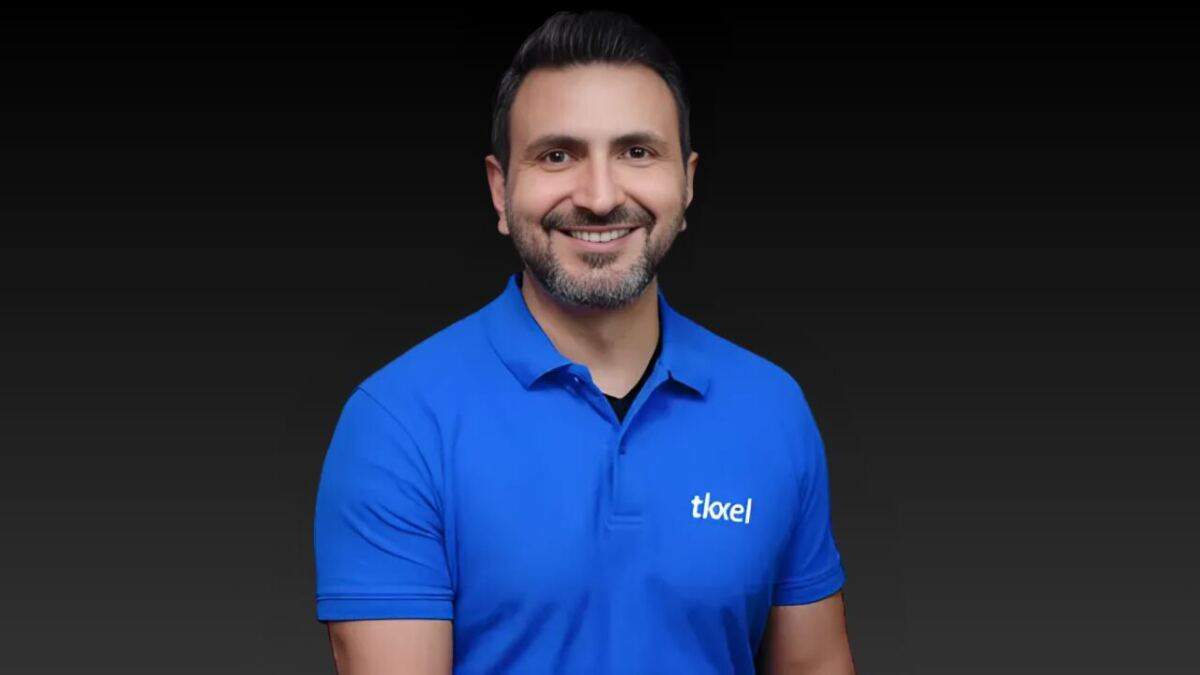In a nation where technology has become the fastest-growing export sector, generating a record $3.1B in annual revenue (PES, 2024), Umair Javed’s name is synonymous with the country’s digital transformation. As the founder and CEO of tkxel, he has engineered one of Pakistan’s most remarkable entrepreneurial journeys, turning a university lab experiment into a $150M global tech titan that powers Fortune 500 giants.
Beyond tkxel, Umair has built a portfolio of ventures shaping Pakistan’s digital future. Nutty Apps, his gaming studio, has amassed 650 million downloads across 150 countries. Lean Bricks, his investment platform, has backed multiple startups — including GrocerApp, Pakistan’s largest grocery delivery service, and Tripkar, a travel-tech disruptor cutting booking costs by 40%. His digital marketing arm, Strategic Alliancez, has propelled over 50 Pakistani brands onto global e-commerce giants like Amazon and Alibaba, turning local businesses into international players.
Long before tkxel made waves in the global tech scene, Umair was shaping Pakistan’s next generation of engineers. As an adjunct professor at LUMS since 2003, he has mentored students — many of whom now hold key roles at tkxel and other top firms. His classrooms didn’t just teach algorithms; they cultivated the mindset that Pakistani engineers could compete globally. Recognition has followed Umair’s work, with earning back-to-back Inc. 5000 rankings (2023, 2024) and Umair securing a seat on the Forbes Technology Council. But for him, real success isn’t measured in awards — it’s in ventures like SchoolDiary, an edtech platform digitizing report cards for 800+ schools, and UrbanGalleria, which empowers rural artisans to sell handmade textiles globally. As Pakistan eyes $5 billion in IT exports by 2026, Umair’s journey offers a blueprint for how vision, mentorship, and ethical tech can drive national growth.
Umair Javed’s Personal Journey
Umair Javed’s journey began in 2003, not as a CEO but as a computer science student at Lahore University of Management Sciences (LUMS). By day, he dissected algorithms. By night, he laid the groundwork for a legacy beyond academia. Graduating in 2006 with a Master’s in Computer Science and the Presidential Gold Medal, his thesis hinted at a restless innovator. Yet one question haunted him:
“How can Pakistan’s tech talent compete globally?”
With just $500 and a five-person team, Umair launched tkxel in 2008, at a time when Pakistan’s IT exports stood at $1.4 billion and global clients were skeptical of its capabilities. He proved them wrong.
At the same time, Umair stepped into angel investing and mentorship, backing emerging startups with both capital and strategy. His influence now extends beyond tkxel, shaping the future of Pakistan’s tech ecosystem through entrepreneurship and education.
“Building a company isn’t just about growth,” Umair says. “It’s about creating impact — on clients, employees, and the communities we serve.”
The Genesis of tkxel
“tkxel began as a rebellion against the idea that Pakistan couldn’t produce world-class tech. We started with a laptop, a lab, and a hunger to prove that ‘Made in Pakistan’ could mean innovation, not just outsourcing,” remarked Umair Javed.
Umair Javed launched tkxel in 2008 as a rebellion against the notion that Pakistan couldn’t produce world-class tech. Starting with a few students and a relentless drive, he focused on delivering high-quality software solutions despite limited resources and global skepticism. When tkxel first pitched a Fortune 500 company, they didn’t just reject the offer, they dismissed Pakistan as a viable tech hub. Umair refused to accept that. He built a team that outperformed expectations, securing breakthrough contracts. These deals weren’t just a win for tkxel, it was proof that Pakistani tech firms could lead on a global scale. “They didn’t care where we were, only that we delivered,” Umair recalls.
Today, tkxel stands as Pakistan’s sixth-largest software exporter (Pakistan Software Export Board, 2024) and has been ranked among America’s Fastest-Growing Companies by Inc. 5000, delivering innovative solutions for Fortune 500 companies and startups across North America, Europe, and the Middle East.
Now, tkxel is a global powerhouse delivering hundreds of transformative solutions, which include custom software development, SaaS-based applications, AI-powered insights, UI/UX design, modernization, cloud integration, DevOps, and global partnerships. With this diverse range of capabilities, tkxel has transformed into a multi-million-dollar technology services leader. For Umair, tkxel’s legacy is clear: “Made in Pakistan” now stands for innovation, not just outsourcing.
Championing Global Entrepreneurship
While tkxel solidified Umair Javed’s reputation as a tech leader, his true legacy lies in his ability to turn Pakistan’s entrepreneurial soil fertile. Through Lean Bricks, his angel investment platform, Umair doesn’t just fund startups, he architects ecosystems.
“I look for founders who see problems as puzzles,” he says. “Not every solution needs to be Silicon Valley-sized. Sometimes, fixing a broken grocery supply chain or digitizing a village school’s report cards can reshape a nation.”
This philosophy comes alive in ventures like GrocerApp, which began as a WhatsApp group for Lahore households struggling with erratic food prices. Under Umair’s mentorship, it scaled into Pakistan’s largest grocery delivery platform, serving 2 million families monthly and slashing food costs by 22% for low-income communities.
Similarly, Tripkar, a travel-tech startup he backed, cracked a uniquely South Asian problem: fragmented bus and train bookings. By aggregating 500+ regional transporters onto a single app, it reduced booking chaos for 1.3 million travelers annually. Umair’s role transcends writing checks. SchoolDiary, an edtech startup, meant pivoting from flashy AI tools to a simple SMS-based system that lets parents in Pakistan’s load-shedding-prone villages track grades offline.
Umair’s philosophy is rooted in the belief that angel investing is about building ecosystems, not just businesses. His ethos earned him the 2024 Digital Leaders Award, not just for Lean Bricks’ 22 funded startups, but for creating a blueprint that connects Pakistani innovators with mentors in Berlin, investors in Dubai, and markets in Nairobi. “Awards are confetti,” he says. “The real win? Watching a founder from Quetta pitch to a room in Qatar and realizing no one asks where they’re from anymore.”
Vision for the Future
“The future belongs to those who can merge technical innovation with a deep understanding of human behavior,” he affirms, setting a powerful example for aspiring entrepreneurs worldwide.
Umair Javed’s vision for the future isn’t etched in boardroom slides or buzzwords. By 2030, he aims to plant tkxel’s flag in 15 emerging markets, starting flagship innovation hubs where Pakistani talent build AI tools, tackling gaps globally. “Tech’s next revolution will rise from places where a single solution can mean the difference between a child eating or a village surviving.” he declares.
Umair’s endgame transcends profit or prestige. He’s institutionalizing a culture where every tkxel engineer dedicates their time to learning and upskilling themselves to be ahead of the technology game.
“The future of tech isn’t just in Silicon Valley, it’s in the hands of young innovators rewriting the rules in unexpected places.”








